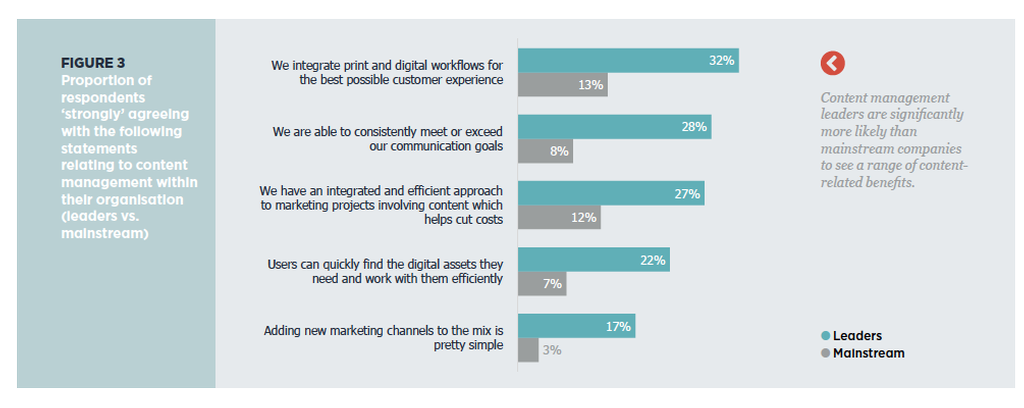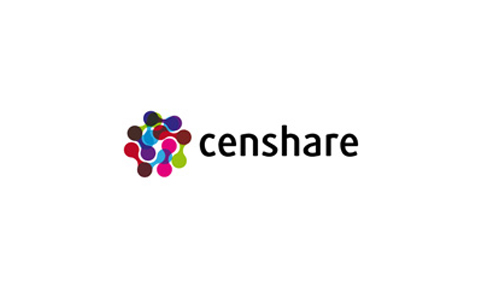Content Centralization – The Key to Marketing Effectiveness
This article by Morag Cuddeford-Jones originally appeared on the censhare blog and we think our readers will find this information useful.
Content centralization sounds like a nebulous marketing term, but once you understand it, it's easy to see the application. For instance, how much time do you spend looking for your house keys every morning? Perhaps hardly any; there is one set, and it always lives in the key drawer. On the other hand, maybe two or more people in your household have copies. Do they all put their key in the same drawer? Or does one set live in a handbag and the other in a desk drawer? Perhaps one of those sets also has the key to the shed, which means hunting down either that set of keys or its owner every time you need to get the lawnmower out. In this metaphor, the keys are your content, and the owners are the divisions of your marketing team.
Like losing your keys, losing track of important assets or who has access to them can cost you an astounding amount of time. We've all had to hunt down missing files or forgotten passwords at one point or another, but it's probably obvious that the less organized your digital assets are, the harder it is to run a campaign or launch a website. If the issue is left alone, it can grow into a rather large and costly problem.
Why Content Centralization Matters
Take a typical nationwide retailer, for example. Serving grocery products to tens of millions of customers across different regions, demographics, and taste profiles means tailoring the marketing of a wide range of communications across print and online, as well as managing merchandising, product information, and inventory.
Content surrounding these products and their messaging is changing all the time. Each department has its own need, its own priorities, and therefore each has a strong tendency to work in its own information silo. But companies whose departments don’t work in lock-step with each other can quickly find their content strategy spinning out of control. Brand messaging isn’t consistent, errors multiply, and assets duplicate over and over — all of these issues cost extra time and money.
Centralizing this information into a single source of truth is the key to minimizing those errors and improving productivity, boosting personalization, and increasing marketing effectiveness. However, the latest research commissioned by censhare has discovered that a large number of organizations still have no form of centralized content management system, and it’s hindering their operation as a result.
Dissolving the Silos
In The State of Universal Content Management 2020, a research report produced by London Research in collaboration with censhare, 74% of those surveyed agreed that they could add significantly more value to their business if only the volume of content-related marketing admin was reduced. A further 59% admitted that, in their opinion, their business wasted considerable time and money on content-related tasks. The research also found that the more established the company, the more likely they were to be struggling to achieve effective content management — actually nearly a fifth (19%) more likely — because the larger a business becomes, the further its content assets are spread and held across departments.
Difficulties in sharing information are among the biggest issues facing large companies (more than $50m turnover), according to the research. With the pressure on to deliver a more integrated, omnichannel experience to the customer, as well as enabling employees to deliver this experience, these challenges are only going to get tougher.
The Case for Centralization in Business
Efficient content marketing is reliant on careful organization. Admittedly, it sounds like a simple concept on paper; organize your files, make your digital content accessible and easy to find, and you're good to go. In reality, it's exponentially more complicated than that, and after you have a centralized structure in place, it's only good if you maintain and use it appropriately. Once your business gets to a certain size, it becomes impossible to know where everything is and which teams have produced which assets, which is why it's worth looking into a content centralization platform to help you not only sort but quickly find assets as you need them.
The point is that centralization solutions aren't a slap on the wrist for companies with poor organizational skills and forgetful employees — they're necessary tools for ensuring your business can keep track of its content regardless of changes in size or personnel. To go back to the metaphor about house keys, the reason there are copies is because everyone who lives at your house needs to be able to get in on their own; maintaining only one key would mean making your family wait outside until you come home with the only way in. The people waiting out front, unable to do anything productive, are your employees in this instance. The problem isn't having too many keys, it's keeping track of them, and marketing technology can solve that problem.
Leading Companies Understand Centralization
The benefits of a centralized content management system are not theoretical. The research found that industry leaders were, on average, three times more likely to have advanced content capabilities, with integrated print and digital workflows, assets that were easy to find and use, and an overall approach geared towards efficiency that ultimately reduces content costs.
 Figure 1: Adapted from The State of Universal Content Management 2020, by L.Gregorladis and M.Savut, 2020, p.8
Figure 1: Adapted from The State of Universal Content Management 2020, by L.Gregorladis and M.Savut, 2020, p.8
Indeed, one such large national retailer implemented censhare to gain control and oversight of all of its product information. As a result, it was able to streamline the production of its advertising materials and manage its promotions much more effectively — with 75% efficiency gains and pricing errors eliminated.
But the research illuminates much more, shedding light on a myriad of content management issues which a variety of companies and their marketeers are currently facing, and the reasons behind them. It really is a fascinating read, and it could help you to understand the areas where adjustments to your content strategy are most likely to positively impact the bottom line. Download your copy here!








 ioi blog
ioi blog ioi events
ioi events ioi newsletter
ioi newsletter